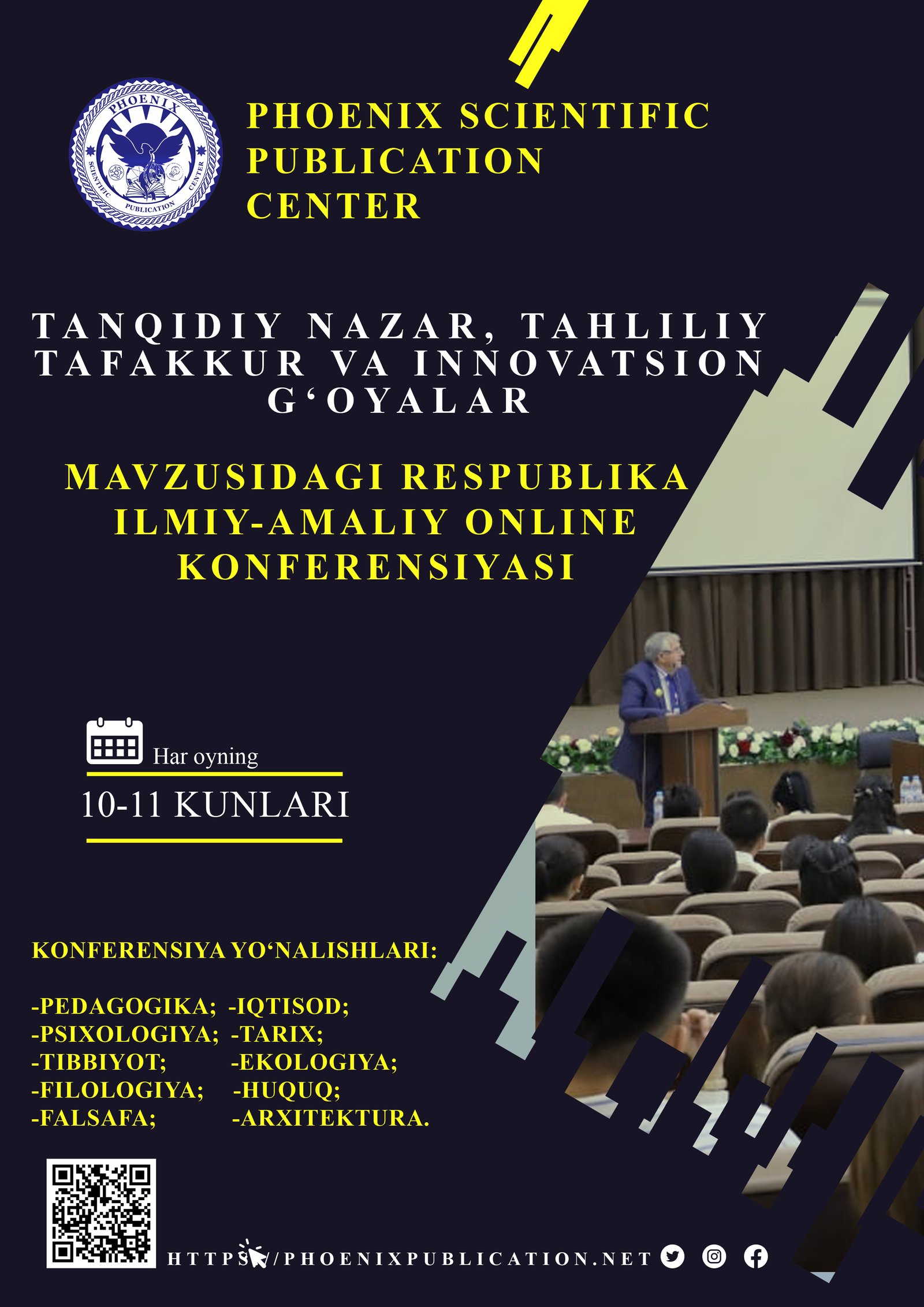Abstract
This paper conducts a comparative analysis of the concept of tolerance in English and Uzbek classical literary texts. It examines how tolerance, as a universal human value, is linguistically and culturally expressed in both traditions. The findings reveal that while both literatures promote tolerance, their interpretations differ—English literature often associates it with individual morality and social justice, while Uzbek literature emphasizes communal harmony and ethical spirituality. These insights contribute to intercultural understanding and comparative literary studies.
References
1. Маслова В.А. Лингвокультурология. — М.: Академия, 2001.
2. Wierzbicka A. Understanding Cultures Through Their Key Words. — Oxford: Oxford University Press, 1997.
3. Тер-Минасова С.Г. Язык и межкультурная коммуникация. — М.: Слово, 2008.
4. Lakoff G., Johnson M. Metaphors We Live By. — Chicago: University of Chicago Press, 1980.
5. Навоий А. Махбуб ул-кулуб. — Тошкент: Ғ. Ғулом номидаги Адабиёт ва санъат нашриёти, 1983.
6. Қодирий А. Ўтган кунлар. — Тошкент: Ўзбекистон, 2015.
7. Shakespeare W. The Merchant of Venice. — London: Penguin Classics, 2005.
8. Dickens C. A Christmas Carol. — London: Wordsworth Editions, 1993.
